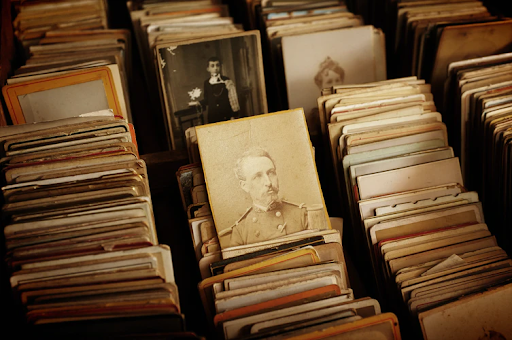No history is ever complete. There are always missing records, topics that don’t get enough attention, and stories that don’t get told. The work of doing history involves sifting through archives, however imperfect, and evaluating documents to construct the story of a time.
“One of things that the archival profession is dealing with, and we are dealing with here at Yale, is silences in the archives. Sometimes groups are under-documented,” Christine Weideman, Yale’s Director of Manuscripts and Archives, told The Politic. “They’re not represented because the prevailing documentation record was not of underrepresented minority groups or under-documented minority groups, so we’re trying to deal with that now and correct it.”
One of the flaws in the repositories of local history is the exclusion of certain groups, such as African Americans. This column previously discussed the myriad challenges local historians face, from technology to local awareness. But local history is also a pursuit that requires a certain degree of economic security. Even among those with the free time to preserve or study local history, few think to devote their time to it. Consequently, some groups, by choice or necessity, are unrepresented in local history circles and lack representation in the historical record.
“We all recognize that there is bias in our archival holdings,” Carol Kammen wrote in her book On Doing Local History. “Most of the records that were sought and collected, those that form the basis of local or regional collections and, indeed, most of what local history once was, stem from and document a community’s elite — or its emerging elite: the commercially successful, the socially prominent, the upwardly mobile, those participating in community institutions. Most of the story is about the white upper classes.”
The lack of archival material for some groups makes their stories more difficult to tell. For example, business records of a local factory may provide its location and some information about its owners. But information about workers (their views, their families) and correspondence among them may be missing or perhaps never created. The missing records interfere with the ability of historians to create an accurate picture of a time period or subject.
The subjects that historians choose to investigate are another limiting factor in local history. In On Doing Local History, Kammen writes that local histories are often written, on some level, to promote the community’s sense of itself. They are somewhat promotional in nature and often funded by community members. As a result, local historians may be inclined to focus on the admirable parts of a community’s past and avoid the embarrassing parts, perhaps focusing on the abolitionists in a community’s past rather than those who held slaves. Also, since local historians often operate in the communities in which they live, they may be hesitant to write about a topic that would discomfit a local family or resident. The often promotional nature of local history tends to produce incomplete narratives which keep stories from the historical record.
Carl Becker, president of the American Historical Association, noted in his 1931 address “Everyman His Own Historian” that “every generation, our own included, will, must inevitably, understand the past and anticipate the future in the light of its own restricted experience, must inevitably play on the dead whatever tricks it finds necessary for its own peace of mind.” Today, historians — reflecting society at large — and the histories they write are much more mindful of the stories of previously ignored groups. As with all local history, the decisions made today will only be realized in the decades to come. A more inclusive look at the past combined with more inclusive archival practices will let historians of the future tell the stories of all groups, not just a community’s elite.
—–
The wonderful thing about local history is that you do not need professional training to practice it. You don’t need specialized education to help tell untold stories or bring light to disregarded subjects.When I started, I had great difficulty finding any resources on the topic of local history. In writing this column, though, I discovered that a great deal of resources exist, if you know where to look. Carol Kammen, for example, has written several books on local history. The American Association of State and Local History has many resources for aspiring local historians, including a book series. And, of course, if you are interested in your local history, the best place for you to begin is your local historical society, where you’ll surely find passionate community members and a wonderful repository of records waiting to be explored.

